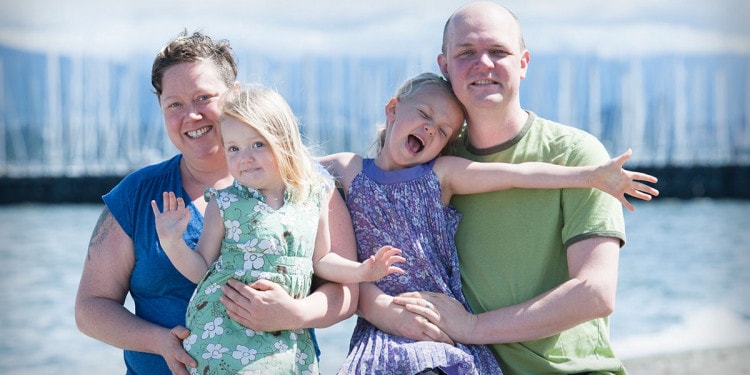This article is part of an editorial collaboration with BCorporation. The BCorp Series can be found here. The original publication can be found here.
With People-Focused Policies That Adapt When Needed, Businesses Create Room for the Realities of Life
I’ve been with Junxion Strategy since late 2013. It is a wonderful place to work, and I get to do interesting things with interesting people. But it hasn’t all been vegan ice cream and craft beer, despite what you may have seen on social media.
A few pretty interesting things came up in my life in my last couple of years at Junxion—“interesting” in the sense of that apocryphal curse, “May you live in interesting times.”
The challenges I faced, which I shall describe below, might have caused a lot more stress and hardship in my personal and professional relationships had I been working for a less progressive employer. As it was, Junxion helped me to turn these challenges into opportunities for our mutual benefit.
The policies and procedures we had in place to handle these kinds of situations get captured, to some extent, in Junxion’s scores in the “workers” section of the B Impact Assessment. But it’s the specifics of how things unfolded that really speak to the values that underlie our status as a Certified B Corporation.

Health benefits are an investment, not a cost.
To make a long story very, very short: Around the time my eldest daughter turned 3, my wife and I started seeing some behaviours that prompted us to seek advice from specialists. We now have a confirmed diagnosis of ADHD for her, but getting to that point took almost three very challenging years of coping, learning and managing a volatile child and situation.
I was often severely sleep-deprived at work, and I needed frequent temporary leaves to attend to the mental health of my daughter and myself. Junxion granted me the leaves I needed, with pay, and few questions asked.
Here’s a quick primer on what ADHD is, if you don’t know. It threw a real curveball to my wife and me as first-time parents and we both struggled, at home and at work. Because I was afforded the time to take care of things properly, things turned out much better than they might have. I learned, among other things, that apparently ADHD is more heritable than height: If a child has ADHD, it’s likely one of the parents does as well.
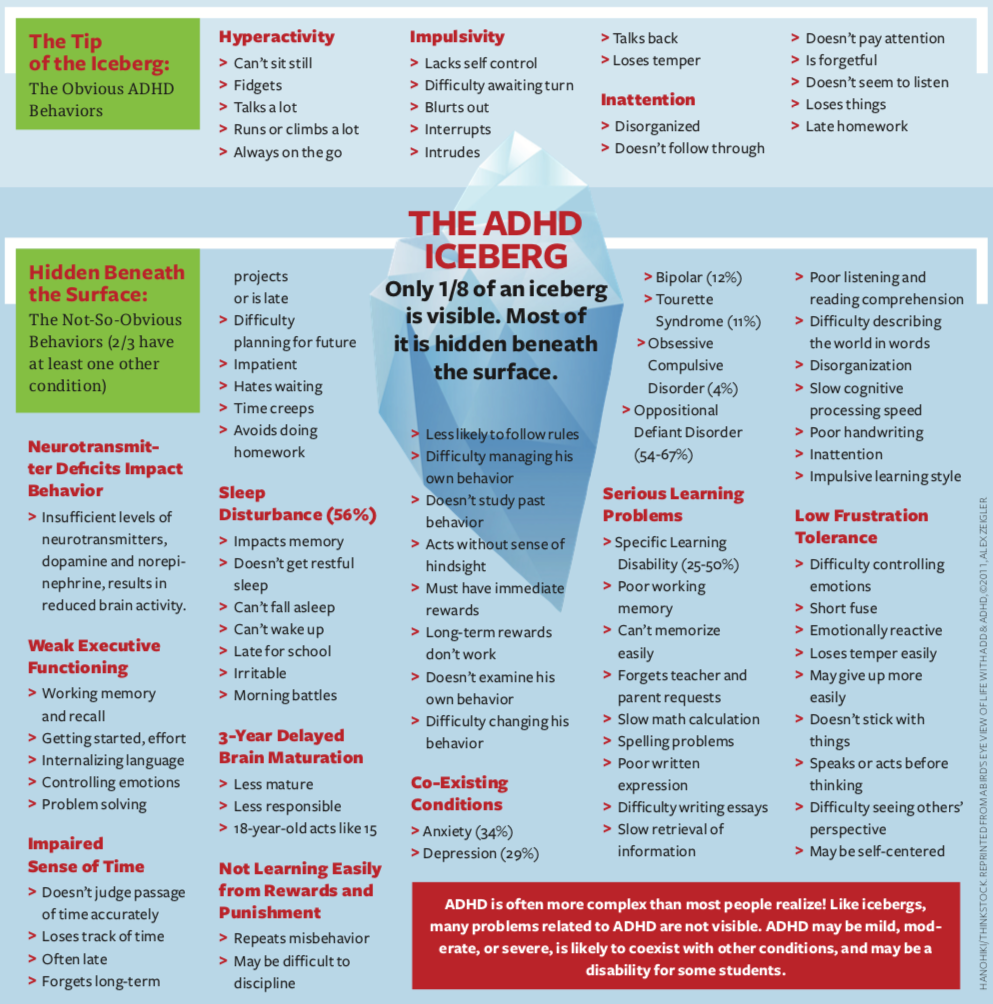
A bunch of things “clicked.” It was apparent that a number of challenges I had dealt with and thought of as “normal” my whole life were, in fact, symptoms of my own ADHD. It did explain why strategy consulting was such a good fit for me — I get bored easily, so I was in the right job to “hyper-focus” on a challenge, master it and then move on to something new.
But it also explained why I was leaving work emotionally drained every day, just from the effort to sustain my focus on what I had to get done, and why I needed to constantly wear headphones playing driving techno to filter out distractions. It also explained why hats and sunglasses were effectively single-use items for me, even though I could easily memorize all my friends’ phone numbers.

My daughter and I are both now treating our ADHD under the supervision of our family doctor. She’s much happier and doing much better at school. Our relationship is better, and I am happier. I am also more productive at work than I think I have been in my whole life. It has been an incredible turning point.
Junxion’s commitment to supporting employee health and wellness has made a huge difference for me and my family (social value) as well as returning incredible business value in terms of avoided downtime and increased productivity.
Professional development is an investment, not a cost.
Flashback to 1997: My first visit to the University of British Columbia campus was to join the crowds of people protesting at the gates of the Asia-Pacific Economic Cooperation (APEC) summit, asserting that business decisions must account for social and ecological outcomes. We were pepper-sprayed by the police for our troubles and I was very nearly arrested (that’s me on the right in the photo, holding the banner and shielding my face in my scarf).
Twenty years later, almost to the day, I was invited to come back to UBC as a faculty member of the Sauder School of Business, where I would teach MBA and commerce students that business decisions must account for social and ecological outcomes. It was somewhat poetic. But would I be able to get a temporary leave from Junxion, or would I have to choose between an opportunity to try teaching and keeping my role as a senior consultant with the B Corp? My four-month absence would leave a considerable gap in our relatively small consulting team.
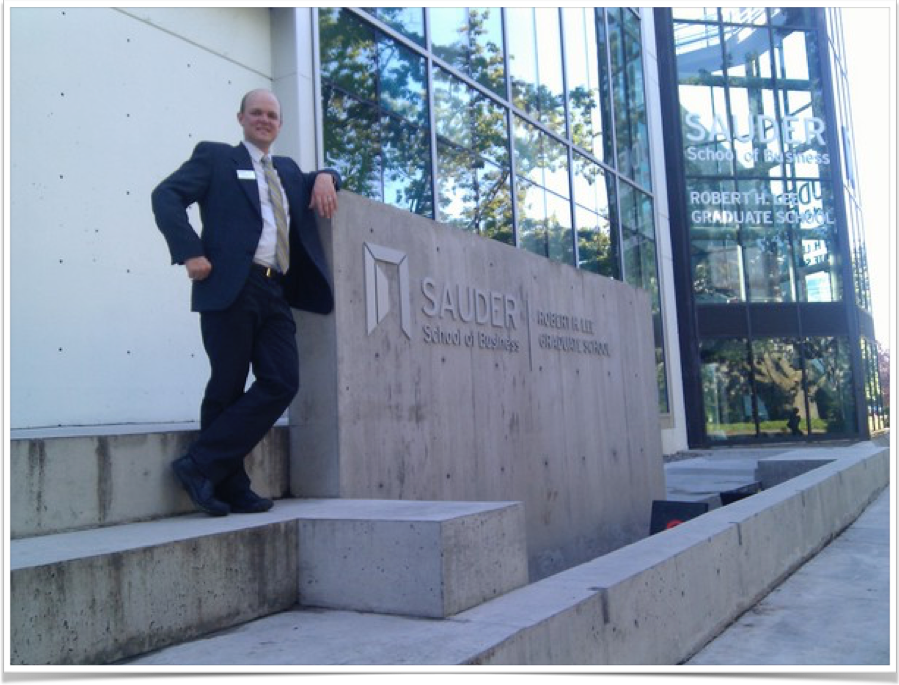
Junxion takes its commitment to professional development seriously. I was allowed to reduce my consulting hours to just one day a week for the semester that I taught social entrepreneurship, and when I came back to Junxion, I brought a bigger professional network, new skills and insights to bring to our client work, and ideas for a new line of business in impact evaluation.
This was also the impetus to better document our systems and processes so that my senior consulting role would be trainable. This enabled us to hire and train staff to fill gaps during my absence and in turn resulted in my promotion to managing director for our office upon my return. Our Canadian operation is larger now, proving that investing in professional development creates social and business value.
Job security and loyalty reinforce each other.
In 2015 I was illegally evicted for the first time since having kids, but it was the third time since I’d moved to Vancouver (and my wife’s fifth time). With kids in the picture, and home ownership as far out of reach as ever, we knew that our long-term future was not in Vancouver. Our 2015 eviction story was featured in a Renters of Vancouver column on February 3, 2018.
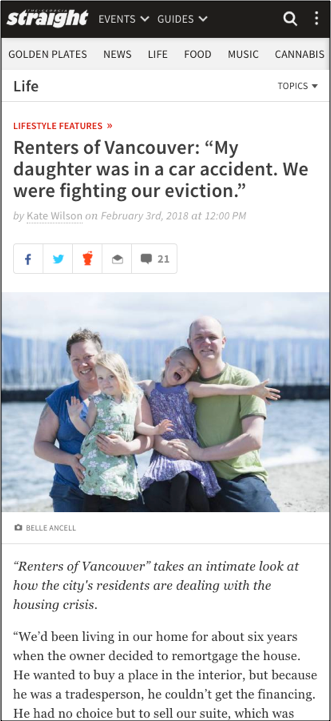
At that point I started the discussion with our CEO, Mike Rowlands, about what it might look like to open an office in Kitchener-Waterloo, Ontario, where we planned to move our family. Those conversations were a good idea, because we were evicted again in 2018 (different landlord, arbitration still pending) and we suddenly had to put our “Plan B” into action.
Junxion really earned its B Impact Assessment points for average employee tenure and low turnover rates that year. On two months’ notice, Junxion agreed to take a risk by maintaining my employment and supporting the move to open a new office for us in Ontario, serving the Waterloo region and Toronto. Here I am today, building our book of business in a new province and furthering our ambition to extend the global reach of Junxion — I’m nicely halfway between the London and Vancouver offices. How’s that for turning a crisis into an opportunity?
Conclusion: Beneath the B
You can look at our B Impact Assessment score and see that Junxion scored well in the workers section on our last assessment — but there’s so much more to the story.
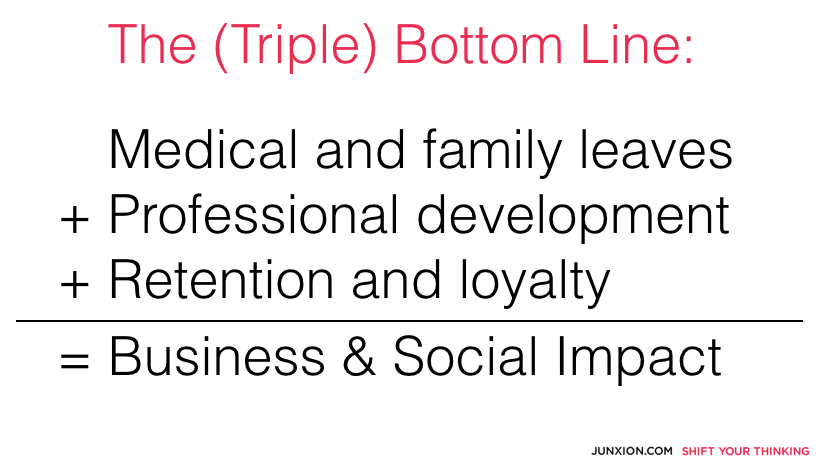
The last three years have been a wild ride. I feel lucky that I have an employer so willing to accommodate my needs through my changing life circumstances that could’ve been ugly speed bumps in my career path. Junxion’s commitment to health, wellness, professional development and retention serve as an example of what it means to be Best For The World in practice.


